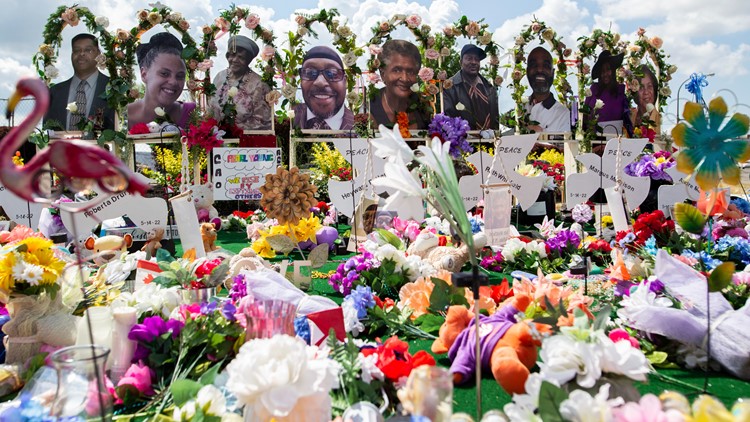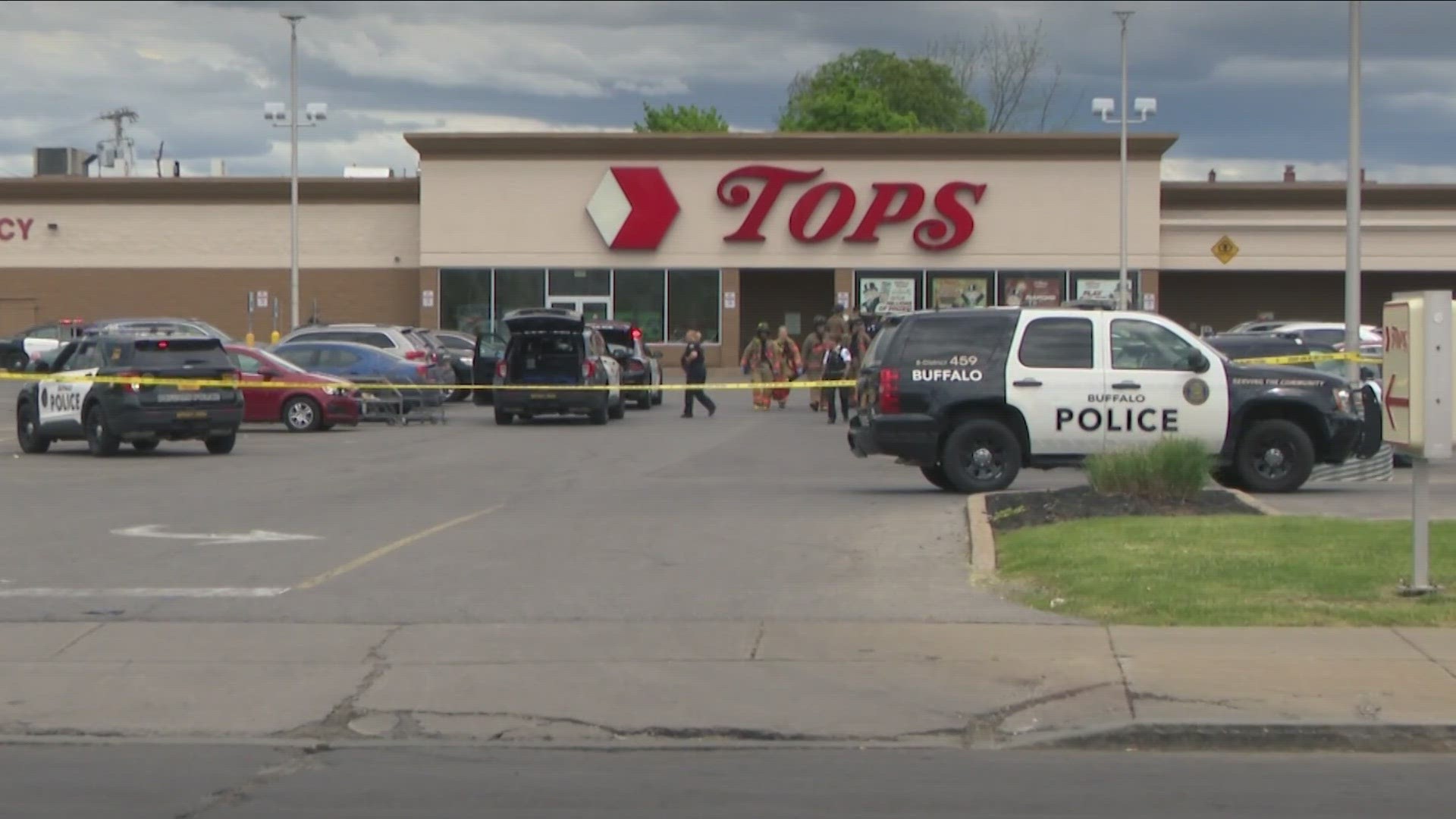BUFFALO, N.Y. — New York State Attorney General Letitia James released the results of an investigation on Tuesday, regarding the role online platforms may have played in the mass shooting at the Jefferson Tops Market in Buffalo on May 14.
10 people were killed and three others were hurt in the massacre, and almost immediately there was a call for a probe into the online activity of the man charged with the shootings, and how it may have influenced him.
James claims her office reviewed thousands of pages of documents and social media content as the basis for her report, which concluded that 18-year-old Payton Gendron was influenced by what he saw and read online.
"There is a number of fringe social media platforms which were responsible for radicalizing this young man," James said, during an interview on the WGRZ Town Hall.
According to James, these websites allow views, including those of extremists calling for violence, to be shared anonymously with virtually no moderating.
In particular, the report mentions 4Chan, where the defendant published a manifesto prior to the shootings, and Twitch, which he used to Livestream them as they occurred.
Among the things James proposes is making it a crime in New York for someone who commits murder to record or produce images of the killing.
She also suggests imposing fines on those who then share such content with others.
However, noted criminal defense and first amendment attorney Paul Cambria expressed doubt either law would stand up to a Supreme Court challenge and cited the case of United States v. Stevens as an example.
"When the Stevens case came before the Supreme Court, which involved the making of movies showing animals being crushed to death, the Supreme Court said that was not an exception to the First Amendment. In other words, you can punish the individuals involved for the criminal act (of animal cruelty), but not for making a film of it," Cambria said.
As for civil penalties against those who share such content, Cambria remarked that it would be like fining Abraham Zapruder for disseminating the film he took which captured the assassination of President John F. Kennedy.
However, James noted that there is in fact a notable restriction regarding the type of content that can be produced and distributed.
"Right now it is criminal to possess or share child pornography. There is both criminal and civil liability," said James, who suggests that depictions of hate and criminal violence should perhaps be considered in the same vein.
Meanwhile, other of James's suggestions would require acts of Congress, which Cambria suggests also might run into constitutional challenges.
These include restricting your ability to live stream events, by making them delayed (the report noted that Gendron's live stream was taken down but not until 2 minutes into the massacre), having service providers restrict access to websites that traffic in violent or hateful content, and narrowing the rather wide protections social media platforms currently have from liability for the content posted by users.
"There has to be some accountability for some of these social media platforms," said James, who is calling for Congress to change Section 230 of the federal Communications Decency Act which would increase the accountability of social media and online platforms to prevent violent criminal content from being shared on their platforms.
While the report concludes that so-called fringe online platforms "radicalized the accused shooter", it also mentions more mainstream social media platforms like Facebook, Twitter, Instagram, and TikTok, which James contends are not doing enough to moderate content, including that which violates their own policies, while exhibiting a lack of transparency regarding their content moderation policies or even how they are applied in practice
Cambria believes the more practical means to such ends, rather than pass laws that courts will reject, would be to establish licensure of social media platforms.
"We already have something like this," said Cambria. "The FCC, for example, licenses broadcast stations, where they set up rules and regulations that are part of the licensing process and need to be followed. "
Regulations involving broadcast stations include restrictions on language and programming in deference to which of types of viewers might be watching or listening at different parts of the day or night.
However, there are no such regulations for the internet.
"They would almost have to create another organization to oversee that," said Cambria. "And that's the difficult part...whether they could do that and be compliant with the First Amendment."



